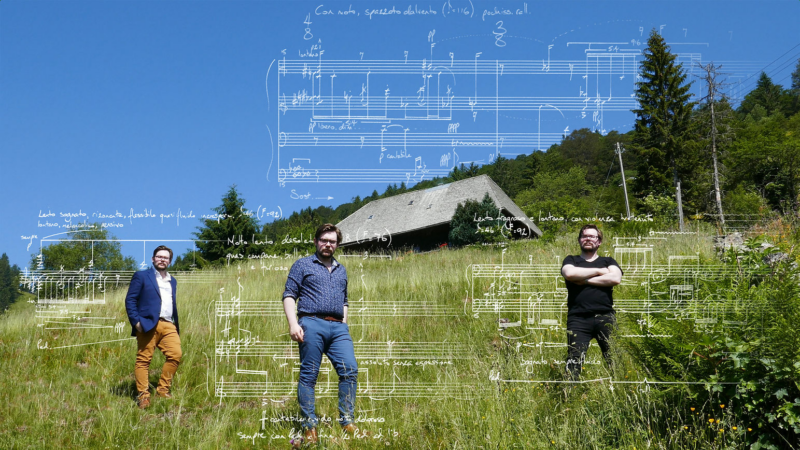Steven Daverson
Composer

Which sound is special for you?
It’s a cliché for a composer to say they value silence, but there’s a particular, rare kind of silence that I have come to value above all, and one I’ve only been lucky enough to receive once. The silence at the end of a piece is always sacred, but too often broken prematurely. At the conclusion of some pieces however, is a unique kind of silence that’s a gift to a composer: when the audience chooses to wait and sit in the world of the piece until they’re ready to leave it on their own terms.
How do you practice listening?
I’m not sure I think of listening as a standalone practice. Every sound has a grain like a piece of wood, something that runs through it beneath the surface; while practised listening helps me recognise those qualities when they’re already present, creating something new and personal means staying attuned to key details in all sorts of places, not just in music. The layering and marbling of paint, the placement of the camera and the flickering texture of the celluloid, the weighting and rhythm of a sentence, the balance of sweetness and acidity in the cup. All of these, shifting over time, with an ability to establish an analogue in sound, provide the kind of vocabulary I need.
What would you want to change about music?
The increased hybridity of musical practice over the last 15 to 20 years has led to many fascinating pieces, but very few have the kind of abstraction that allows an audience to find their own place within it, without being told what to think. I’d love to see more works where the socio-political ideas are woven into the fabric of the piece, rather than on the surface. However well-intentioned the author, sometimes I’m left wondering why a deeper aesthetic experience has been cast aside in favour of sermonising.